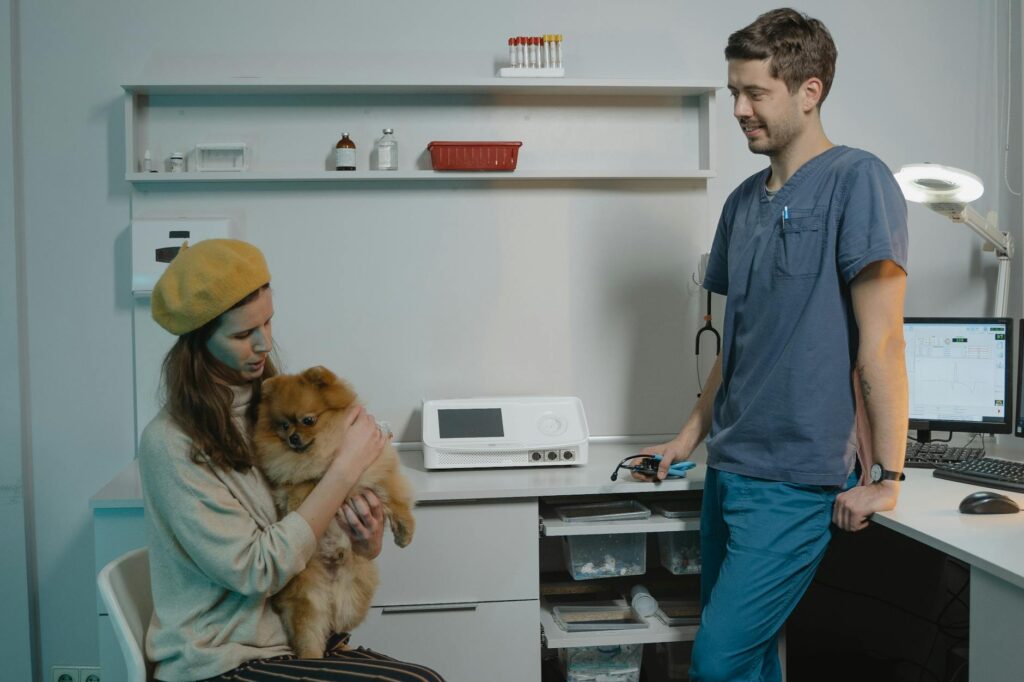Discover how to give your aging senior dog the love, care, and nutrition they need to thrive in their golden years!
As our furry friends age, they require more specialized care to ensure their comfort and health. Senior dogs, typically those over the age of seven, need adjustments in their living environment, healthcare routines, and diet. This comprehensive guide will help you navigate the essentials of caring for your senior dog, maintaining their health and wellness, and choosing the best diet to support their aging bodies.

Older Dogs: Care & Comfort
Understanding Aging in Dogs
Recognizing the signs of aging in your dog is the first step towards providing them with the best care. Common signs include graying fur, reduced energy levels, and slower movements. Behavioral changes such as increased sleeping, reduced interest in play, and occasional confusion are also indicators of aging.
Creating a Comfortable Home Environment
To make your home senior-dog-friendly, consider these modifications:
- Supportive Bedding: Invest in an orthopedic bed that supports their joints.
- Accessible Spaces: Ensure their favorite spots are easily accessible without the need to jump or climb stairs.
- Moderated Exercise: Adjust their exercise routines to shorter, more frequent walks that suit their energy levels.
Regular Veterinary Check-Ups
Senior dogs need more frequent visits to the vet to monitor their health closely. Schedule check-ups every six months and include screenings for common senior dog issues like arthritis, dental disease, and vision or hearing loss.
Health & Wellness
Managing Common Health Issues
Aging dogs are prone to several health problems:
- Arthritis: Look for joint supplements containing glucosamine and chondroitin to ease their discomfort.
- Cognitive Decline: Keep their minds active with new toys and training exercises.
Importance of Mental Stimulation for your senior dog
Mental stimulation is crucial for senior dogs to prevent cognitive decline. Introduce interactive toys, puzzle feeders, and regular training sessions to keep their minds sharp. Teaching new tricks can also provide mental exercise.
Grooming and Hygiene
Regular grooming is essential for senior dogs:
- Skin and Coat Care: Use moisturizing shampoos to prevent dry skin.
- Dental Health: Brush their teeth regularly and provide dental chews to prevent periodontal disease.
Select Canine Cuisine: Nutritional Needs of Senior Dogs
Caloric Needs and Weight Management
Senior dogs typically have lower energy requirements. Adjust their diet to prevent obesity, which can exacerbate joint pain and other health issues. Opt for lower-calorie dog food designed for seniors.
High-Quality Protein Sources for your senior dog
Protein is vital for maintaining muscle mass in senior dogs. Choose foods with high-quality protein sources like chicken, fish, and eggs. Ensure they get at least 2.55 grams of protein per kilogram of body weight daily.
Joint and Bone Health
Incorporate foods rich in omega-3 fatty acids, glucosamine, and chondroitin to support joint and bone health. These nutrients help reduce inflammation and maintain cartilage, improving mobility.
Canine Cuisine: Choosing the Best Diet for Senior Dogs
Reading Dog Food Labels
Understanding dog food labels is crucial:
- Ingredients: Look for whole protein sources as the first ingredient.
- Nutrients: Ensure the food contains essential vitamins and minerals like vitamin E, calcium, and phosphorus.
Homemade vs. Commercial Diets
Decide between homemade and commercial diets:
- Homemade Meals: Provide control over ingredients but require careful balancing of nutrients.
- Commercial Foods: Look for reputable brands that offer senior-specific formulas.
Special Dietary Needs
Senior dogs may develop food allergies or sensitivities. Monitor their reactions to new foods and adjust their diet accordingly. Consider supplements like probiotics, vitamin E, and L-carnitine for added health benefits.
Providing tailored care, regular health monitoring, and a well-balanced diet will ensure your senior dog enjoys a happy, healthy life. Remember, your senior dog has given you a lifetime of love; now it’s your turn to ensure their golden years are as bright and joyful as possible.
Start today with these essential care tips and share your own experiences in the comments below! Subscribe for more tips on senior dog care and well-being.
Your senior dog deserves the best in their golden years. With the right care, diet, and love, you can help them thrive and enjoy every moment together. Begin this rewarding journey today and cherish the special bond you share!

Pingback: Understanding Senior Dog care and Their Unique Needs - Doggochum Online Pet Store
Mobility challenges are common in senior dogs, and it’s tough to see them struggle with stiffness and getting up. Have you tried any supplements or therapies that have helped improve mobility for your senior dog?